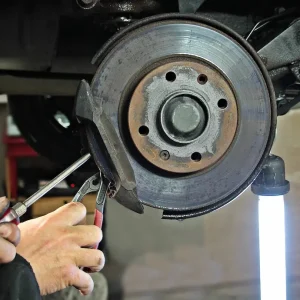At this year’s Consumer Electronics Show in Las Vegas, Ford demonstrated that it is intent on ploughing ahead with ambitious plans to connect cars and homes, exploring the development of such technology alongside partners including Wink and Amazon, the latter with its Alexa and Echo systems.
In a BBC interview, Steve McDonald, marketing director of Hoover’s ‘white goods’ business stated that “by 2017 all our white goods will be connected.
The whole market will have gone that way by 2020.” The firm’s Wizard range already offers Wi-Fi connected, smartphone-controlled kitchen appliances from fridge-freezers to washing machines, and other companies large and small are scrambling to join the Internet of Things (IoT) revolution.
Deutsche Telekom predicts that 300m homes worldwide will contain smart devices by 2025 and one of the few hurdles standing in the way may be poor interoperability, which is why many key players are taking an open platform approach.
Consumers in the not-too-distant future will be boiling kettles, switching on lights, turning on ovens, firing up central heating systems and programming TV recorders from their connected cars, using technology such as Ford’s SYNC and Smart Device Link systems, the latter an open platform which has already been adopted by Toyota. With modern life continually becoming busier for many, such innovations will surely be welcomed by private motorists and consumers – but can the same be said for business drivers?
Smart device interoperability will undoubtedly herald many benefits for businesspeople. Lex Autolease’s 2015 Report on Company Motoring stated that 24% of the 812 respondents typically spend 15 hours or more behind the steering wheel, and with the Greater Birmingham Chamber of Commerce estimating that local businesses lose around £3m each day due to traffic congestion, the ability to control the office printer from a car, for example, will be invaluable in boosting efficiency.
For employees who view the daily commute or adhoc business journeys as an opportunity to mentally switch off, though, the connected car and IoT may seem like approaching nightmares, incoming emails read out over the car’s speakers and colleagues, suppliers and clients expecting a reply to be dictated on the move.
When IoT connectivity linking smart homes and connected cars has become established and understood by legislators, HR departments and motorists, the European Working Time Directive may have a bearing on business drivers essentially working whilst driving their cars, irrespective of the safety implications.
Business Insider UK’s connected car market report from 2015 found that 42% of motorists surveyed have heard of connected car features but are not familiar with what they can do. This correlates with my experience in the vehicle leasing field, the majority of clients primarily remaining more interested in sat nav, leather seats and trim





